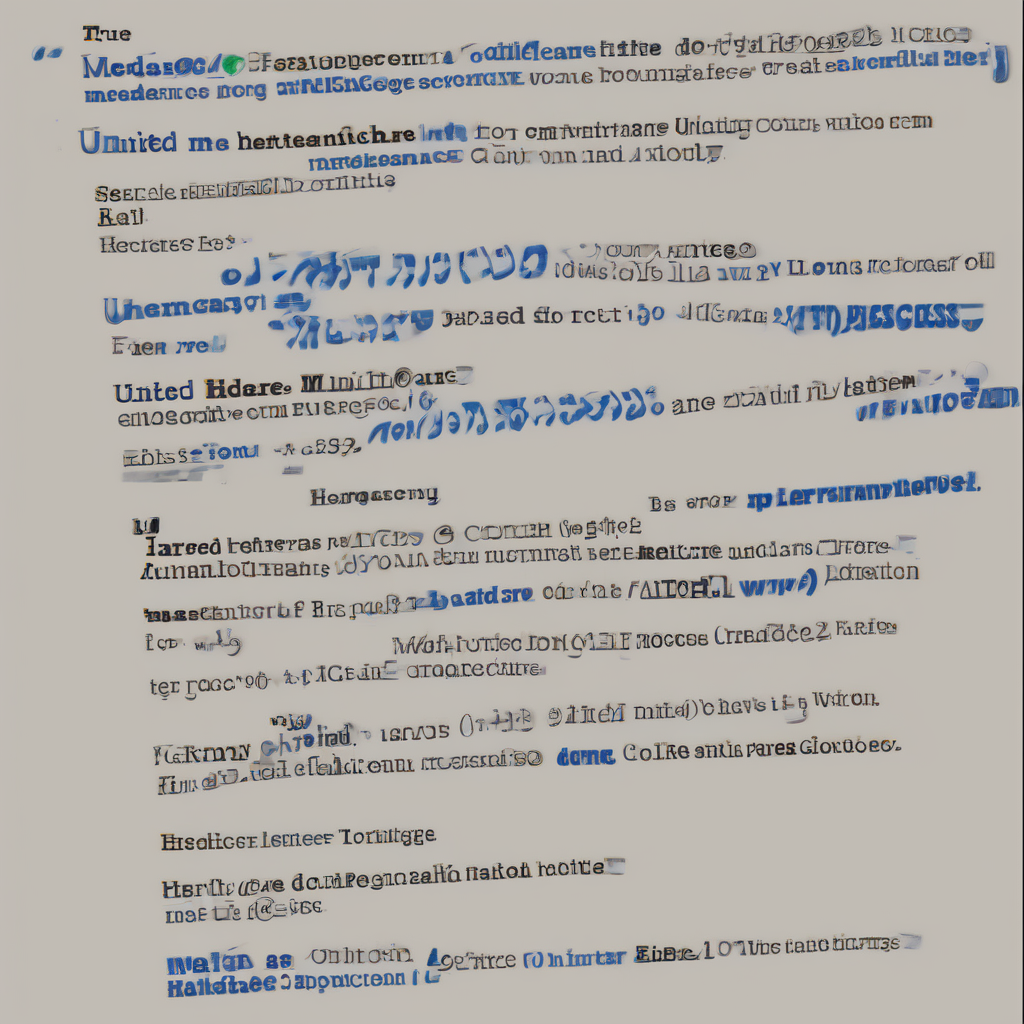
UnitedHealthcare Group Medicare Advantage PPO: A Comprehensive Guide
UnitedHealthcare (UHC) is a major player in the Medicare Advantage market, offering a wide array of plans, including Preferred Provider Organization (PPO) plans. Understanding the nuances of a UHC Medicare Advantage PPO is crucial for seniors navigating their healthcare options. This guide delves into the key features, benefits, and considerations associated with these plans.
What is a Medicare Advantage PPO Plan?
Medicare Advantage (MA) plans, also known as Part C, are offered by private companies approved by Medicare. They provide an alternative to Original Medicare (Part A and Part B). A Medicare Advantage PPO plan combines the benefits of Original Medicare with additional features, offering a more comprehensive coverage structure. Unlike Health Maintenance Organizations (HMOs), PPOs provide greater flexibility in choosing healthcare providers.
Key features of a UHC Medicare Advantage PPO plan often include:
- Flexibility in Provider Choice: You can see any doctor or specialist who accepts the plan, in or out of network. However, costs will generally be lower when you use in-network providers.
- Prescription Drug Coverage (Part D): Most UHC Medicare Advantage PPO plans include Part D prescription drug coverage, eliminating the need for a separate Part D plan.
- Preventive Care: These plans generally cover preventive services like annual wellness visits and screenings at no additional cost.
- Extra Benefits: Many UHC Medicare Advantage PPO plans offer extra benefits beyond Original Medicare, such as vision, hearing, and dental coverage. These additional benefits vary depending on the specific plan.
- Lower Out-of-Pocket Costs: While the specifics depend on the plan, Medicare Advantage PPOs often cap out-of-pocket expenses, offering a degree of cost predictability.
Understanding UnitedHealthcare’s Medicare Advantage PPO Offerings
UnitedHealthcare offers a diverse range of Medicare Advantage PPO plans, varying by region, coverage details, and cost. The specific plans available in a given area depend on factors such as local provider networks and market competition. To find the most suitable UHC Medicare Advantage PPO plan, you need to:
- Use the Medicare Plan Finder: The Medicare.gov website offers a comprehensive plan finder tool allowing you to search for available plans based on your location, coverage needs, and budget.
- Contact UnitedHealthcare Directly: UHC provides customer service representatives who can help you understand the nuances of their various plans and answer any questions you may have.
- Compare Plans Carefully: Pay close attention to the plan’s formulary (list of covered medications), network of providers, monthly premium, annual deductible, and out-of-pocket maximum.
- Review the Evidence of Coverage (EOC): This detailed document outlines all the plan’s benefits, coverage limitations, and rules.
Key Considerations When Choosing a UHC Medicare Advantage PPO
Selecting the right Medicare Advantage PPO plan requires careful consideration of several factors:
- Provider Network: Ensure your current doctors and specialists are part of the plan’s network. If not, assess the convenience of switching providers or incurring higher out-of-pocket costs for out-of-network care.
- Prescription Drug Coverage: Scrutinize the plan’s formulary to ensure your necessary medications are covered. Check the drug’s tier level as this impacts your cost-sharing.
- Premiums and Cost-Sharing: Compare the monthly premium, annual deductible, copayments, and out-of-pocket maximum across different plans. Consider the overall cost of the plan relative to your expected healthcare needs.
- Extra Benefits: Evaluate the value of additional benefits such as vision, hearing, and dental coverage. Consider whether these benefits are worth the increased premium or cost-sharing.
- Customer Service and Plan Reviews: Check customer reviews and ratings of UHC’s Medicare Advantage PPO plans. Assess the ease of accessing customer service and the responsiveness of the plan’s administration.
- Geographic Coverage: Ensure the plan covers the areas where you frequently receive care.
Comparing UHC Medicare Advantage PPO with Other Medicare Options
Before choosing a UHC Medicare Advantage PPO, it’s crucial to compare it to other Medicare options:
- Original Medicare (Part A and Part B): Original Medicare offers broader provider choice but involves higher out-of-pocket expenses and may require supplemental insurance (Medigap) for cost protection.
- Medicare Advantage HMOs: HMOs generally have lower premiums but restrict provider choices to those within the plan’s network. Switching doctors often requires obtaining prior authorization.
- Medicare Advantage HMO-POS Plans: These offer a hybrid approach, combining aspects of HMOs and PPOs, providing more flexibility than HMOs while generally maintaining lower costs than PPOs.
- Other Medicare Advantage PPO Plans from Different Carriers: Several insurance companies offer Medicare Advantage PPO plans, each with its own network, benefits, and cost structure. Comparing offerings from different carriers allows for informed decision-making.
Enrollment and Open Enrollment Periods
Understanding enrollment periods is crucial for selecting a UHC Medicare Advantage PPO plan. There are specific times of the year when you can enroll or make changes to your plan:
- Initial Enrollment Period (IEP): This period begins three months before the month you turn 65, includes the month you turn 65, and ends three months after the month you turn 65.
- Annual Enrollment Period (AEP): This runs from October 15 to December 7 each year. During this time, you can switch plans or enroll in Medicare Advantage for the following year.
- Medicare Advantage Open Enrollment Period (MA OEP): This runs from January 1 to March 31 each year. It allows you to switch from one Medicare Advantage plan to another or return to Original Medicare.
- Special Enrollment Periods (SEP): Certain life events, such as moving to a new area or losing other health coverage, may qualify you for a special enrollment period outside of the regular enrollment periods.
Navigating the Claims Process with UHC Medicare Advantage PPO
Understanding the claims process with UHC Medicare Advantage PPO is important for ensuring timely reimbursement. Typically, the process involves:
- In-Network Claims: Claims for services from in-network providers are generally processed automatically. You may receive an explanation of benefits (EOB) detailing the charges and payments.
- Out-of-Network Claims: For services from out-of-network providers, you will likely need to submit claims yourself or through your provider. Reimbursement may be less than for in-network services.
- Appealing a Claim Denial: If a claim is denied, you have the right to appeal the decision. UHC provides information on how to initiate the appeals process.
- Contacting Customer Service: If you have questions or encounter issues with the claims process, contact UHC’s customer service department for assistance.
Staying Informed and Utilizing Resources
Staying informed about your UHC Medicare Advantage PPO plan is crucial for maximizing its benefits. Several resources can help:
- UnitedHealthcare’s Website: UHC’s website provides access to your plan details, formulary information, provider directories, and other valuable resources.
- Medicare.gov: The official Medicare website provides comprehensive information on all Medicare plans, including UHC’s offerings.
- Your Plan’s Evidence of Coverage (EOC): This document details all aspects of your plan’s coverage, including benefits, limitations, and procedures.
- State Health Insurance Assistance Programs (SHIPs): These programs offer free counseling and assistance to Medicare beneficiaries in understanding their coverage options.
Conclusion (Omitted as per instructions)




